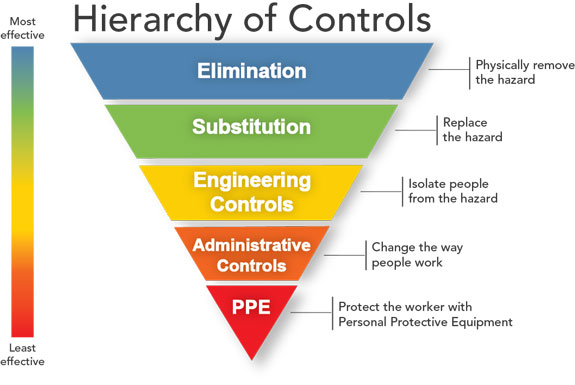Blog
HSE inspections | How to prepare your workplace for COVID-19 ‘spot checks’
The HSE and local authorities have begun visiting businesses to check they are COVID-compliant.
Having reminded employees of the mechanism for reporting genuine concerns back in April 2020, the regulator told IOSH that Inspectors are now proactively following up on reports to ensure that appropriate measures are in place to protect workers from contracting the virus at work.
Watch our webinar, “What to Expect from a COVID-19 Regulator Inspection” above, where our experts play out an example scenario and explain where the employer fell short.
According to the HSE, almost 4,000 businesses were subjected to spot checks between 9 March and 29 June 2020. This represents a mixture of site visits and over-the-phone checks supported by a request for evidence including documents, photos and in some instances video footage. Promisingly, of those contacted so far, all but 41 businesses were deemed to be compliant after the second check.
Still, the prospect of an unannounced visit from the regulator can be daunting, so what can businesses do to strengthen their position ahead of time and make the process as pain-free as possible?
Our Health & Safety Consultants explain how to prepare for a COVID-19 inspection.
1. Make sure you're taking all reasonable precautions
Even if your business isn’t currently on the HSE’s radar, there is every chance that you may be visited at any point in the next 12 months. It is therefore important to prepare for that possibility by ensuring all “reasonably practicable” measures are and remain in place.
It will not be possible to completely eliminate the risk of COVID-19 completely, and that is not what the law requires; it’s about taking sensible measures to minimise the likelihood of somebody contracting COVID-19 in your setting or as a result of your activities. As a rule, a measure must be adopted unless the time, energy and cost involved in implementing it is grossly disproportionate to the risk. This is a good benchmark to set, and you should apply the hierarchy of risk controls to make sure that the most effective measures are considered first.

2. Understand what could prompt a complaint (and work with staff, not against them)
Employees are able to submit an anonymous complaint to the HSE if they are concerned that risk is not being properly managed. All complaints will be considered by the regulator, with some triggering a spot check. Issues that might prompt a complaint include:
- Not adhering to social distancing measures
- Not producing a COVID-19 Risk Assessment and making this available to staff
- Not providing training to employees on your risk control measures
- Allowing symptomatic staff to remain in work
- Not providing adequate PPE
It is important to deal with employees who raise concerns responsibly; don’t brush off concerns or reprimand employees for raising a potential safety issue. These are critical opportunities to refine your controls so that staff feel more comfortable and your business is less exposed, so work with employees to find workable solutions. After all, this is far better than facing a potential whistleblowing situation.
3. Gather your documents
As ever, when it comes to risk management, being able to demonstrate compliance is essential. This doesn’t mean producing reams of paperwork for the sake of it, but the action you take and the plans you have in place should be documented. Not only will this form the basis of your communication with employees and others, but it is likely you will be asked to produce certain documents should you be inspected.
Make sure you have the following:
- A COVID-19 Health & Safety Policy (or a separate section within your existing policy that deals with COVID-19)
- A COVID-19 Risk Assessment (if you employ five or more employees, it is a legal requirement to keep a written record of significant findings)
- Training records
- An Emergency Action Plan
All of these documents should be shared with staff through regular communication and training to prevent any suggestion that employees haven’t been informed of your risk control measures or made aware of what they must do to keep themselves and others safe. If you can’t evidence that you have informed staff of your arrangements, then it ultimately comes down to your word against theirs. For this reason, it is also a good idea to have employees sign to confirm acceptance and understanding.

4. Know your stuff
The HSE Inspector or Local Authority Inspector will ask a series of questions to determine whether you are managing risk effectively, and you will need to make sure you are familiar with your arrangements so that you can answer confidently. This might include:
- Did you conduct a risk assessment before opening? If so, who produced it, and did you collaborate with others, including employee representatives, when identifying risk and deciding on appropriate measures?
- Was the risk assessment documented? If so, have the findings been shared with employees, and do you have any acknowledgement that they have read and understand what they must do?
- How are you ensuring the specific controls mentioned in your risk assessment are being adhered to and remain effective? An Inspector will check that the measures you have committed to are indeed in place, so it is important that regular monitoring checks are conducted. Are there sufficient stocks of soap and hand sanitiser? Is your cleaning regime being followed? Are people working in a socially-distanced way and, where it is necessary for them to work closer, are other mitigating measures in place such as no face-to-face working and keeping time to a minimum? Is pedestrian flow being managed through separate entrances and exits, one-way systems and staggered work times?
- Has the risk assessment been kept up to date? Your risk assessment should be dated and reviewed regularly, including whenever there is a significant change to your business practices or personnel, new or updated government guidance, or if there is reason to believe your controls are no longer effective.
- What is your policy surrounding workers who may be displaying symptoms of coronavirus? You should have a clear Emergency Action Plan in place detailing your response to any suspected or confirmed cases. Importantly, symptomatic employees should not feel under any pressure to attend the workplace and should understand exactly what is expected of them. Remember, COVID-19 incidents may also need to be reported under RIDDOR, so you will need arrangements in place to investigate whether this is required in each case.
- Who are your competent person(s)? By law, all employers must have access to one or more ‘competent persons’ – someone who has “sufficient training and experience or knowledge and other qualities” to recognise risks and identify solutions. If you don’t have somebody suitable in house, you can appoint an external professional.
If you can’t currently answer yes to any of these questions, now is the time to focus on these areas so that you’re not caught out later on. Keep in mind that the more information you are able to provide upfront, the better; a bland response (“we’re all fine here and understand our responsibilities”) is likely to result in further investigation and scrutiny.
5 things to note about HSE inspections
- Complaints are anonymous, and the Inspector will not disclose who raised an issue with the regulator. Their role is to follow up on the allegation(s) and satisfy themselves that the business is protecting people from harm.
- Inspectors do not have to give notice of their visit; they have the power to enter a workplace at any reasonable time to carry out their role. This is all the more reason to be prepared.
- You may be questioned about compliance with government guidance. While the guidance itself isn’t legally enforceable, health and safety legislation is, and it carries penalties if you fail to do all that is reasonably practicable to control risks. The guidance is there to help you decide what is reasonably practicable, and if you don’t follow it, you will still need to demonstrate that you are taking other equally effective measures.
- For premises regulated by the HSE, if the Inspector identifies what they believe to constitute material breaches of health and safety legislation, you may have to pay an hourly charge, known as Fee for Intervention, for the time it takes the regulator to identify the breach and help you put things right.
- Remember, the regulator is not there to catch you out. They seek to ensure you are keeping your workers and others safe and that includes the risks arising from COVID-19. Cooperate with them and support their investigation with the necessary evidence that demonstrates your efforts to make your workplace COVID-19 secure.
Put your best foot forward with our Health & Safety support
If you’re not fully confident in your COVID-19 compliance, our safety specialists can help you to put in place all necessary arrangements and demonstrate them through bespoke documentation and software. That way, you can protect your people, resume your operations safely and be regulator-ready at all times. Here’s what one of our clients had to say about a recent pain-free inspection:
Ian Harvey, Head of Compliance, GFM Ltd
To find out how our personalised, fixed-fee service can give you peace of mind, call 0345 226 8393 or visit our Coronavirus Advice Hub for all of our free risk management resources.
Sign up for the latest news & insights
Resources
Latest News & Insights

Language of appreciation at work | Why individual motivation matters
BLOG Written by Becs Bridge, Director of Learning & Development, on 23 January 2026 In today’s competitive talent market, the organisations that retain top performers

Recruitment trends 2026 | 7 things to expect when hiring this year
BLOG Written by Danielle Fargnoli-Read on 22 January 2026 If there’s one thing recruitment has taught us over the past few years it is that

Breach of employment contract | What employers need to know to avoid Tribunal claims
BLOG Written on 15 January 2026 Breach of contract is a common concern for businesses, particularly during resignations, dismissals, or disputes over pay, notice, or

When does the Employment Rights Bill 2025 come into effect?
BLOG Written on 19 December 2025 It’s been the most talked-about topic in HR in 2025 and the question everyone’s been asking is, “When is

Workforce planning | Structuring your business for success
BLOG Written by Danielle Fargnoli-Read (Updated February 6th 2026) Strategic workforce planning is a vital business process that’ll align your organisational needs with long-term goals.

Changes to day one unfair dismissal rights | New six-month protection explained
BLOG Written by Patrick Carroll-Fogg on 1 December 2025 Of the almost 75 individual tweaks and changes set to be introduced under the Employment Rights

Breaking down the Budget 2025 for employers
BLOG Written by Daniel Rawcliffe on 27 November 2025 The recently announced UK Budget 2025 is a challenging one for small businesses. While it covers

AI for interviews with job candidates | Balancing technology with a human touch
BLOG Written by Danielle Fargnoli-Read and Tracey Burke on 21 November 2025 Businesses using AI for interviews are reshaping the way UK businesses approach hiring,

Workplace risks revealed | HSE 2024/25 report shows rising injuries and ill health
BLOG Written on 21 November 2025 Providing a safe, healthy workplace should be a top priority for all employers. But how well are workplaces actually
